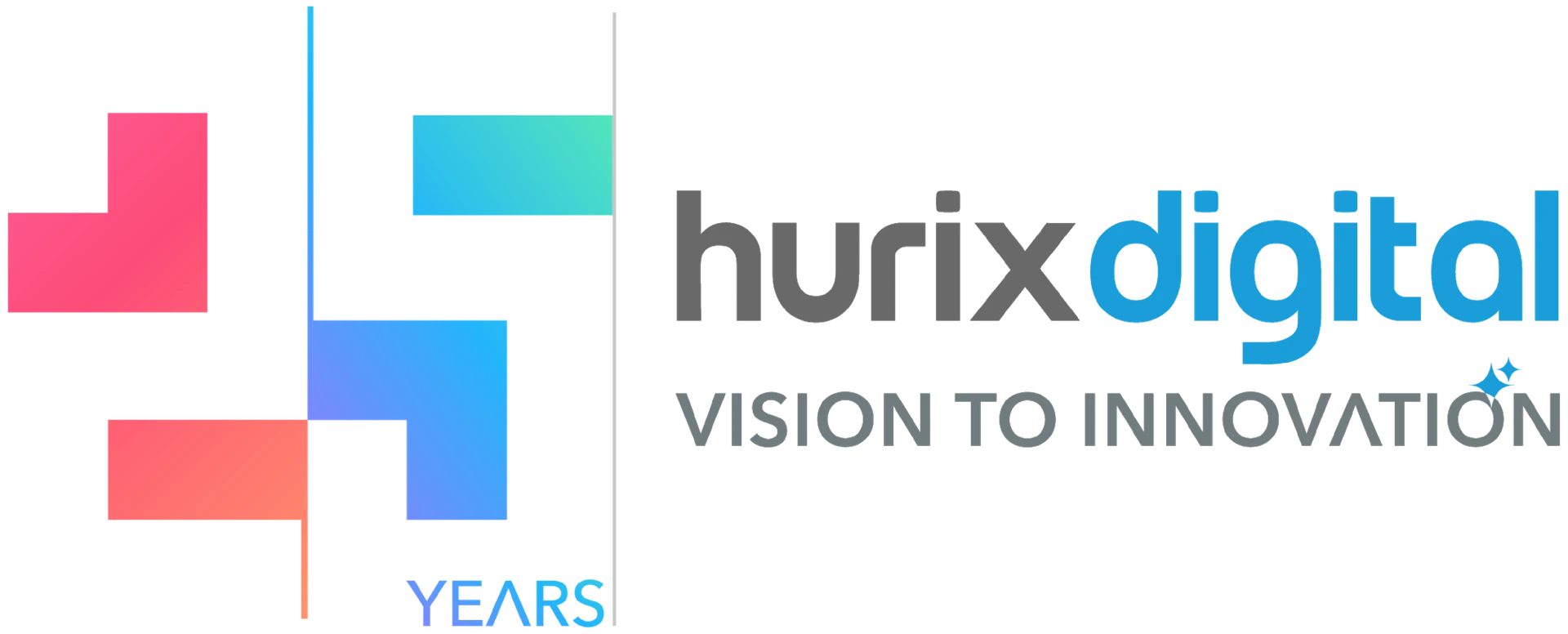
Partnering with an Educational Solutions Company for Universities and Higher Education Institutions
Summarize with:
At the turn of the century, education underwent a revolution in terms of content, approach, and teaching methodologies. Modern technologies not only reshaped the concept of imparting education but also added a new dimension to it. Thanks to the educational solutions company, this new dimension went beyond physical classrooms and conventional teaching methodologies.
Through online education platforms, students overcame the barriers of space and time. The prospects of reaching students beyond their geographical reach were fascinating for educational institutions. The overall acceptance of this new revolutionary way of teaching and learning tremendously boosted the industry’s growth.
The global e-learning market, which was valued at $107 billion in 2015, is predicted to touch a whopping $325 billion by 2025. Characterized by ease of access, the ability to overcome the limitations of time and geography, and cost-effectiveness, the e-learning industry is achieving new milestones and offering better options to learners everywhere.
Students are actively exploring online and blended learning options and are highly inclined to adapt to methods that enrich their education and qualifications without limiting their freedom.
Table of Contents:
- Transforming Education and Learning with Digital Solutions
- Benefits of Partnering with an Educational Solutions Company
- Harnessing Technology to Drive Student Success
- Higher Education in the New Era
Transforming Education and Learning with Digital Solutions
Universities and institutions all across the world are introducing online programs in their curriculum to provide better opportunities to their students. Conventional classroom faculty lectures are being replaced by online teaching sessions, video lectures, e-learning modules, and online evaluations.
Educational services companies are renovating the teaching landscape by offering innovative services like learning management systems, mobile learning solutions, game-based learning solutions, e-learning content, self-assessment platforms, and digital libraries.
- Learning Management Systems (LMS) are comprehensive applications that can be used to develop educational content and perform certain administrative functions such as documentation, reporting, tracking, and maintaining records.
- ePUB3 Automation is a revolutionary way to convert your e-books and PDFs into ePUB formats that are easily accessible from multiple devices.
- Gamification enhances learning by introducing creative gaming elements and aspects into teaching methods.
- Content delivery platforms use technology to revolutionize the way educational content is delivered to learners.
- Mobile learning solutions convert heavy content into bite-sized content to be consumed through mobile devices.
- Assessment platforms are comprehensive tools that assess learners on various aspects without any hassles and generate personalized reports.
Digital content libraries are huge repositories of educational material accessible digitally across different devices.
Benefits of Partnering with an Educational Solutions Company
Here are the major benefits of partnering with educational solutions companies:
1. Expertise and Resources
Companies providing digital solutions to universities invest heavily in state-of-the-art technologies and a pool of talent with specialized skills. Partnering with such an enterprise gives universities leverage and thrust to transform education being imparted under their aegis.
2. Cost Efficiency
The biggest challenge while deciding between buying services and developing them in-house is the cost aspect. Universities often find the cost of acquiring the services daunting and opt to develop the program in-house to save this cost. Although some of the cost is saved by developing the programs in-house, the overall efforts and resources required to maintain and update the services turn out to be higher than the cost of acquisition.
3. Back-end Support
An edtech company has the necessary technology, talent, and expertise to build and support the services. Since these programs are used by students across various geographies simultaneously, there must be no disruption in the services. A dedicated back-end support team ensures the smooth functioning of these services.
4. Updates and Maintenance
Needless to say, the programs will need to be updated according to the changing curriculum or to incorporate certain new topics. With a dedicated support team, it would make the process seamless.
5. Ready to Use
Off-the-shelf products are ready to use right after installation and initial set-up formalities. Even if the product needs to be customized according to the client’s needs, it is only a matter of time before it becomes available for use. This saves a lot of time, especially when new programs are launched or necessary updates are made to the existing programs.
6. Customization
Unlike traditional classroom courses, online programs can be highly customized. Universities can let the students choose from their choice of subjects, course duration, and types of teaching methodologies. Even if the overall course structure remains the same, there can be multiple customizations within the course to suit different types of students.
Also Read: 9 Reasons for the Growth of eLearning in Education
7. Scalability
The programs are specially designed to handle additional load if and when the need arises. Instead of investing in a new program to accommodate the additional demand, it is convenient and cost-effective to make minor changes in a scalable program. This maintains uniformity across the platform and keeps services unobstructed.
8. Better User Experience
Digital educational solutions are designed to make learning interesting. Teaching lessons through audiovisuals, games, interactive ebooks, and other innovative methods enhances the overall learning experience for students.
Learners can keep track of their performance throughout the course duration instead of waiting until the term ends to gauge their performance. Depending on the type of lesson and program, a student can connect with fellow students and faculty members and be a part of a bigger community.
9. Higher Enrollment and Completion
Learning on the go through online platforms does not limit the students to space or time. Universities that offer their students the flexibility to learn have higher enrollment rates and lower dropout rates. Students are more inclined to complete their courses when they are provided with the convenience of time and place.
10. Useful Insights
Online courses collect important data regarding students, their browsing history, the time spent on each lesson of the module, and their performance. This information gives useful insights about the users and can be used to improve the products, offerings, and user experience on the platform.
Harnessing Technology to Drive Student Success
Educational institutions are embracing innovative digital solutions to equip students with tools that enhance both their academic and personal development.
The use of these tools has significantly improved teaching methods and has transformed the emphasis towards outcomes that genuinely count—graduation rates, employability, and lifelong learning.
1. Using AI and Predictive Analytics to Enhance Student Success
AI-driven technologies are transforming the way universities comprehend and assist their students.
Through the analysis of extensive data gathered via education IT solutions, institutions can pinpoint students who may be at risk of underperforming and provide early, customized support to help them succeed.
Predictive analytics reveals intriguing patterns in student behavior, attendance, and academic performance, offering valuable insights for faculty and administrators to act upon.
A university that adopts IT solutions for educational institutions can utilize AI to suggest tailored learning resources for students facing challenges in particular subjects. In a similar vein, predictive models empower academic advisors to develop strategies that keep students on the path to graduation, ultimately lowering dropout rates and enhancing overall institutional performance.
2. Tools for Boosting Collaboration
The transition to hybrid and online education has highlighted the significance of strong collaboration.
Advanced higher education solutions feature tools that foster seamless communication and collaboration among students, faculty, and administrative staff. Virtual whiteboards, group discussion platforms, and real-time document sharing create a vibrant sense of community and collaboration, essential in today’s dispersed learning environments.
These IT solutions for education industry challenges also connect cultural and geographical gaps, enabling students from diverse backgrounds to participate in meaningful discussions and projects. Institutions that embrace these tools experience greater student satisfaction and enhanced learning outcomes.
3. Promoting Inclusive Education
The education industry solutions have significantly driven the movement towards inclusivity.
Through assistive technologies like screen readers, voice-to-text tools, and adaptive learning software, institutions ensure that students with disabilities can access quality education. Moreover, providing multilingual support in digital educational solutions guarantees that non-native speakers are included, creating a genuinely inclusive atmosphere.
When institutions collaborate with digital solutions for education, they enhance their ability to build an environment where every student, no matter their abilities or background, can truly flourish. This is an essential move toward ensuring fairness in education and equipping a varied student population for opportunities around the world.
4. Boosting Faculty Development through Digital Tools
Faculty development is a vital area where technology significantly contributes. Universities are utilizing advanced higher education IT solutions to offer ongoing professional development opportunities for their professors.
Online training modules, virtual teaching workshops, and AI-driven feedback systems empower faculty members to enhance their teaching techniques and keep abreast of the latest educational trends.
5. Creating a Strong Education Network
Resilience has emerged as a central theme in the education sector, which is encountering unique challenges, ranging from pandemics to technological disruptions.
Institutions that invest in strong higher education solutions are more prepared to embrace changes and maintain continuity. Cloud-based systems allow universities to effortlessly switch between in-person and remote learning modes, ensuring students’ education remains uninterrupted.
Partnering with an innovative education solutions company enables universities to create an ecosystem that endures challenges and flourishes in times of adversity. The capacity to adapt and evolve distinguishes the institutions at the forefront of the new era of education.
Also Read: How Mobile Learning is Changing the Educational Landscape
Higher Education in the New Era
The process of imparting education is dynamic. It has to incorporate the required changes and transform accordingly to remain effective. The demands and expectations of the learners have made professors, deans, and institutions explore new and better ways to remain relevant.
With the advent of technology, things have been changing more dramatically, and it has become imperative for professors to keep up with the changes.
Partnering with an educational solutions company such as Hurix Digital is a practical way for universities to smoothen the process and create ideal student learning experiences. This ensures that educational institutions’ offerings remain relevant, engaging, and accessible to a global student base. Feel free to reach out to our team for more information.
Summarize with:

Senior Vice President
A Business Development professional with >20 years of experience with strong capability to sell new solutions and develop new markets from scratch. New Market Entry Specialist with experience working in the largest emerging markets. Exceptional experience in conceptualizing, ideating and selling new learning technologies like VR AR, etc. across multiple industry verticals.
 A Space for Thoughtful
A Space for Thoughtful 